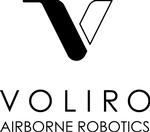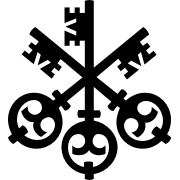Voliro's $23 Million Leap: A New Era for Infrastructure Inspection
June 17, 2025, 9:36 pm
In a world where infrastructure is the backbone of civilization, maintaining it is a daunting task. Aging structures crumble under the weight of time, and the need for innovation has never been more pressing. Enter Voliro, a Swiss aerial robotics company that has just secured $23 million in funding to revolutionize how we inspect and maintain critical infrastructure.
Voliro’s technology is not just a step forward; it’s a leap into the future. The company’s flagship product, the Voliro T platform, is built on a patented tiltable-rotor design. This allows for versatile aerial inspections, equipped with interchangeable sensor payloads. Imagine a bird of prey, sharp-eyed and agile, soaring over industrial landscapes, spotting issues before they become disasters. That’s the essence of Voliro’s mission.
The urgency for such innovation is palpable. Aging infrastructure is responsible for up to 30% of major industrial accidents in Europe. Corrosion-related failures cost the global economy a staggering $2.5 trillion annually. As seasoned inspectors retire, industries face a talent crisis. New tools are essential to attract a fresh generation of technicians. Voliro’s aerial robots answer this call, transforming the inspection landscape.
The funding round saw participation from noa Ventures and a debt facility from UBS, with Cherry Ventures leading the initial investment. This backing is not just financial; it’s a vote of confidence in a technology that promises to modernize infrastructure maintenance. The Voliro T platform is designed to inspect hard-to-reach areas like flare stacks, storage tanks, and wind turbine blades. It empowers asset owners in the energy, chemicals, and renewables sectors to detect issues early, enabling proactive maintenance and reducing downtime.
In the fast-paced wind industry, where every minute counts, Voliro shines. The platform allows for inspections of wind turbine lightning protection systems (LPS) to be conducted five times faster than traditional methods. This translates to a reduction in downtime and inspection costs by up to 50%. All of this is achieved without the need for manual access, making inspections safer and more efficient.
Voliro is not just a leader in aerial inspection; it’s a pioneer. With over 100 contact inspections performed monthly, the company has established a strong global presence, serving more than 40 customers across 17 countries, including industry giants like Chevron and Holcim. This extensive reach is a testament to the effectiveness of Voliro’s technology in complex industrial environments.
The recent investment will accelerate the development of the next-generation Voliro T platform. This includes deeper cloud integration, AI-powered inspection reporting, enhanced autonomy, and modular payloads. These advancements signify a shift from semi-automated inspection to full autonomy. It’s a move from passive sensing to active intervention, pushing the boundaries of what aerial robots can achieve in industrial settings.
Florian Gutzwiller, Voliro’s CEO, emphasizes the significance of this technology. Infrastructure maintenance is one of the great challenges of our time. With the support of forward-thinking investors and a growing network of customers, Voliro is not just imagining a future with autonomous aerial robots; it’s building it. The company combines cutting-edge robotics with real-world safety and sustainability needs, contributing to a smarter future.
The implications of Voliro’s technology extend beyond mere efficiency. It addresses a trifecta of global needs: enhancing industrial resilience and safety, facilitating climate adaptation, and alleviating workforce shortages in the inspection field. This is not just about technology; it’s about protecting the built environment we all rely on.
As industries grapple with the challenges of aging infrastructure and a shrinking workforce, Voliro stands at the forefront of a revolution. The aerial robots symbolize a new era in inspection, one that promises to make the profession more appealing to a new generation of skilled technicians. By transforming how inspections are conducted, Voliro is not only strengthening resilience in infrastructure maintenance but also modernizing the profession itself.
The partnership with noa Ventures is particularly noteworthy. As Europe’s largest venture capital firm dedicated to innovation in the built world, noa recognizes the potential of Voliro’s technology. The firm’s founder, Gregory Dewerpe, highlights the massive opportunity for robotics and automation in large-scale industrial inspections. Both aging and new assets will benefit from more frequent, automated, and reliable inspections.
In conclusion, Voliro’s $23 million funding is more than just a financial boost; it’s a catalyst for change. The company is poised to redefine how we inspect and maintain critical infrastructure. With its innovative aerial robotics, Voliro is not just addressing current challenges; it’s paving the way for a safer, more sustainable future. The sky is no longer the limit; it’s just the beginning.
Voliro’s technology is not just a step forward; it’s a leap into the future. The company’s flagship product, the Voliro T platform, is built on a patented tiltable-rotor design. This allows for versatile aerial inspections, equipped with interchangeable sensor payloads. Imagine a bird of prey, sharp-eyed and agile, soaring over industrial landscapes, spotting issues before they become disasters. That’s the essence of Voliro’s mission.
The urgency for such innovation is palpable. Aging infrastructure is responsible for up to 30% of major industrial accidents in Europe. Corrosion-related failures cost the global economy a staggering $2.5 trillion annually. As seasoned inspectors retire, industries face a talent crisis. New tools are essential to attract a fresh generation of technicians. Voliro’s aerial robots answer this call, transforming the inspection landscape.
The funding round saw participation from noa Ventures and a debt facility from UBS, with Cherry Ventures leading the initial investment. This backing is not just financial; it’s a vote of confidence in a technology that promises to modernize infrastructure maintenance. The Voliro T platform is designed to inspect hard-to-reach areas like flare stacks, storage tanks, and wind turbine blades. It empowers asset owners in the energy, chemicals, and renewables sectors to detect issues early, enabling proactive maintenance and reducing downtime.
In the fast-paced wind industry, where every minute counts, Voliro shines. The platform allows for inspections of wind turbine lightning protection systems (LPS) to be conducted five times faster than traditional methods. This translates to a reduction in downtime and inspection costs by up to 50%. All of this is achieved without the need for manual access, making inspections safer and more efficient.
Voliro is not just a leader in aerial inspection; it’s a pioneer. With over 100 contact inspections performed monthly, the company has established a strong global presence, serving more than 40 customers across 17 countries, including industry giants like Chevron and Holcim. This extensive reach is a testament to the effectiveness of Voliro’s technology in complex industrial environments.
The recent investment will accelerate the development of the next-generation Voliro T platform. This includes deeper cloud integration, AI-powered inspection reporting, enhanced autonomy, and modular payloads. These advancements signify a shift from semi-automated inspection to full autonomy. It’s a move from passive sensing to active intervention, pushing the boundaries of what aerial robots can achieve in industrial settings.
Florian Gutzwiller, Voliro’s CEO, emphasizes the significance of this technology. Infrastructure maintenance is one of the great challenges of our time. With the support of forward-thinking investors and a growing network of customers, Voliro is not just imagining a future with autonomous aerial robots; it’s building it. The company combines cutting-edge robotics with real-world safety and sustainability needs, contributing to a smarter future.
The implications of Voliro’s technology extend beyond mere efficiency. It addresses a trifecta of global needs: enhancing industrial resilience and safety, facilitating climate adaptation, and alleviating workforce shortages in the inspection field. This is not just about technology; it’s about protecting the built environment we all rely on.
As industries grapple with the challenges of aging infrastructure and a shrinking workforce, Voliro stands at the forefront of a revolution. The aerial robots symbolize a new era in inspection, one that promises to make the profession more appealing to a new generation of skilled technicians. By transforming how inspections are conducted, Voliro is not only strengthening resilience in infrastructure maintenance but also modernizing the profession itself.
The partnership with noa Ventures is particularly noteworthy. As Europe’s largest venture capital firm dedicated to innovation in the built world, noa recognizes the potential of Voliro’s technology. The firm’s founder, Gregory Dewerpe, highlights the massive opportunity for robotics and automation in large-scale industrial inspections. Both aging and new assets will benefit from more frequent, automated, and reliable inspections.
In conclusion, Voliro’s $23 million funding is more than just a financial boost; it’s a catalyst for change. The company is poised to redefine how we inspect and maintain critical infrastructure. With its innovative aerial robotics, Voliro is not just addressing current challenges; it’s paving the way for a safer, more sustainable future. The sky is no longer the limit; it’s just the beginning.

